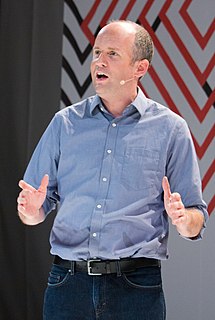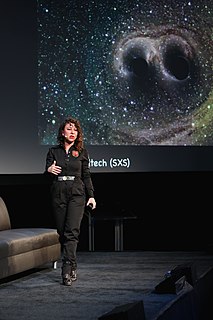A Quote by Oliver Burkeman
Ask yourself whether you are happy', observed the philosopher John Stuart Mill, 'and you cease to be so.' At best, it would appear, happiness can only be glimpsed out of the corner of an eye, not stared at directly.
Related Quotes
The change began with John Stuart Mill and the Utopians . When Mill pointed out that economics had no ultimate solution to the problem of distribution , that society might do with the fruits of its toil as it saw fit, he introduced into the mechanical calculus of the market a conflicting calculus of moral judgment.
There are faint stars in the night sky that you can see, but only if you look to the side of where they shine. They burn too weakly or are too far away to be seen directly, even if you stare. But you can see them out of the corner of your eye because the cells on the periphery of your retina are more sensitive to light. Maybe truth is just like that. You can see it, but only out of the corner of your eye.
'In his celebrated book, 'On Liberty', the English philosopher John Stuart Mill argued that silencing an opinion is "a peculiar evil." If the opinion is right, we are robbed of the "opportunity of exchanging error for truth"; and if it's wrong, we are deprived of a deeper understanding of the truth in its "collision with error." If we know only our own side of the argument, we hardly know even that: it becomes stale, soon learned by rote, untested, a pallid and lifeless truth.'
John Stuart Mill believed that the only acceptable reason for government to limit a person's liberty was to prevent him from causing unacceptable harm to others. Mill was not a libertarian, but many libertarians are quick to cite this principle when arguing against a regulation that they oppose. And I believe most thoughtful libertarians are prepared to embrace something fairly close to Mill's harm principle. But accepting that principle implies accepting many of the institutions of the modern welfare state that libertarians have vigorously opposed in the past, such as safety regulation.
You will find true success and happiness if you have only one goal, there really is only one, and that is this: to fulfill the highest most truthful expression of yourself as a human being. You want to max out your humanity by using your energy to lift yourself up, your family and the people around you. Theologian Howard Thurman said it best. He said, “Don’t ask yourself what the world needs. Ask yourself what makes you come alive and then go do that, because what the world needs is people who have come alive.”
The great philosophers of the past who wrote so beautifully - Rousseau, John Stuart Mill - had to write beautifully because they had to sell their work to journals. They had to sell books to the general public because they could not hold positions in universities. Mill was an atheist, and, therefore, could not hold a position in a university.































